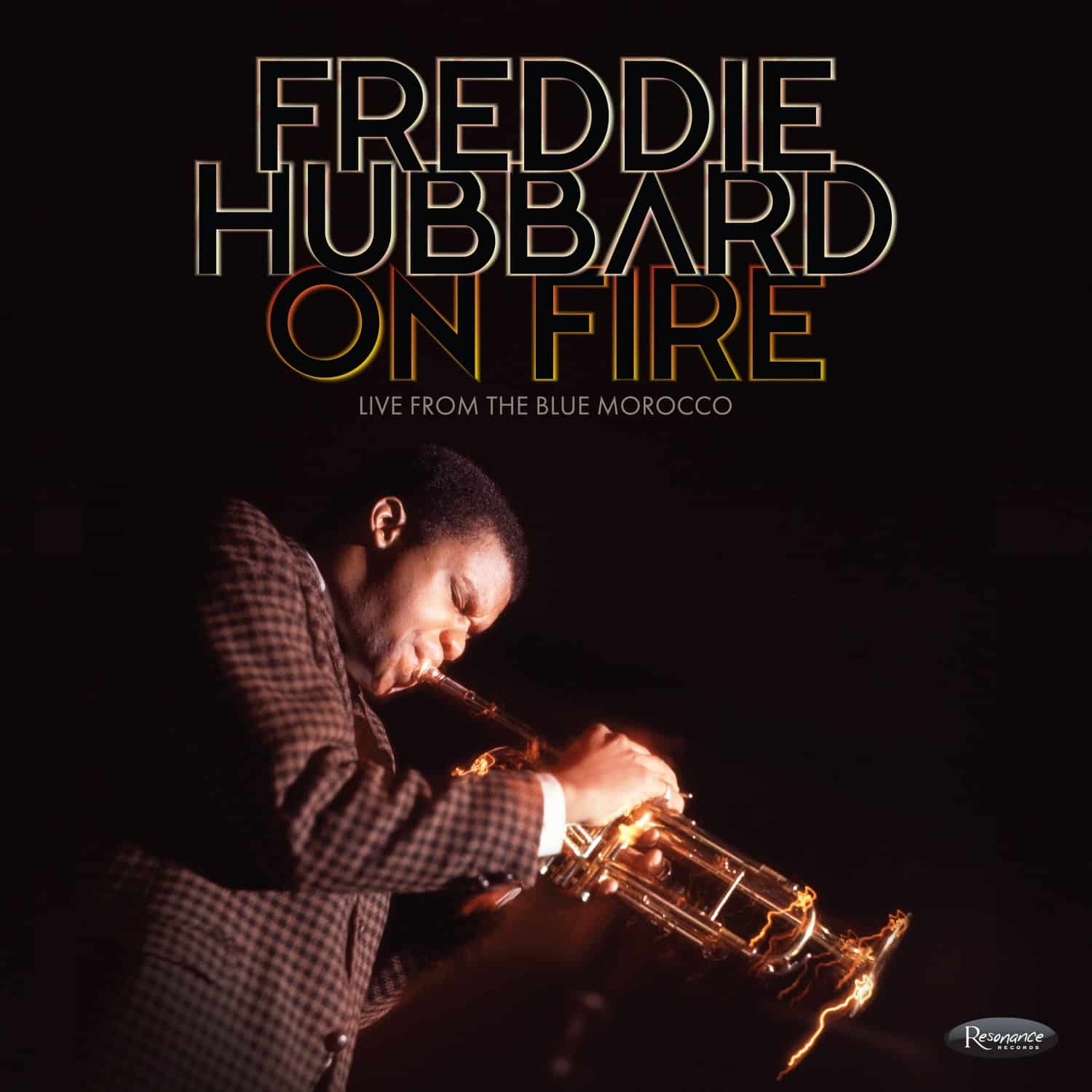Freddie Hubbard On Fire – Live From The Blue Moroc
Printed From: JazzMusicArchives.com
Category: Jazz Music Lounges
Forum Name: Jazz Music News, Press Releases
Forum Description: Submit press releases, news , new releases, jazz music news and other interesting things happening in the world of jazz music (featured in home and artist page)
URL: http://www.JazzMusicArchives.com/forum/forum_posts.asp?TID=32488
Printed Date: 12 Apr 2025 at 3:12am
Software Version: Web Wiz Forums 10.16 - http://www.webwizforums.com
Topic: Freddie Hubbard On Fire – Live From The Blue Moroc
Posted By: snobb
Subject: Freddie Hubbard On Fire – Live From The Blue Moroc
Date Posted: 05 Apr 2025 at 2:08am
Freddie Hubbard – ‘On Fire – Live From The Blue Morocco’3 LPs. Recorded 1967
 Like the recent release of McCoy Tyner and Joe Henderson’s ‘Forces of Nature: Live at Slugs’ from 1966, Freddie Hubbard’s 1967 date at Sylvia Robinson’s Bronx club, the Blue Morocco, is a superior recording that wholly deserves its belated disinterment. Taped with professional quality equipment by jazz enthusiast, photographer and audio engineer Bernard Drayton, a onetime Brooklyn neighbour of Hubbard who had a successful day-job career in advertising, it captures a terrific performance by a terrific band in the context of a live date that was never intended to become a commercial album. The Drayton hoard of recordings is also a remarkable jazz repository: John Coltrane’s last public performance, released on Impulse! as ’The Olatunji Concert’, is another title from Bernard’s archive. Presented as three LPs in a special limited edition set for Record Store Day, complete with a booklet containing short essays and quotes from everyone involved, ‘On Fire’ both looks and sounds excellent. Hubbard is, as the title suggests, in great form but what is so special about the album is that, perhaps unlike recordings intended for release where the bandleader was more likely to feature his own playing, and to showcase new compositions, here Freddie Hubbard – who had turned 29 just three days earlier – takes prideful ownership in presenting his band and giving them space aplenty. And what a band, his working group of the time. Apparently it was his first regular band, which is hard to believe as he’d already made nine albums as a leader as well as two with Art Blakey. The rhythm team of Herbie Lewis on bass and Freddie Waits (the father of Nasheet Waits), both of whom, like Hubbard, have passed on, is a rock-steady unit. Waits in particular provides a real engine for the group, with a driving, often splashy sound that excels on both Latin and swing time, as well as the two jazz waltz tunes in the repertoire. Bennie Maupin, then 26, on tenor sax – who shortly after this recording would go on to play with Miles Davis and in Herbie Hancock’s Mwandishi band – follows a quieter yet still rumbustious Sonny Rollins-esque tenor style that is extremely effective paired with Hubbard’s grand virtuosity. On piano, aged only 23, Kenny Barron already sounds like a star. As an accompanist, everything he does sounds right, and when he solos you can’t help focusing intently. He also has the temerity to do whatever he chooses with the tempo, ready to slow ‘Bye Bye Blackbird’ and ’Summertime’ – neither of which are at all by rote – to a crawl if he wishes. The other tunes are Hubbard originals, opening with a blistering version of ‘Crisis’, and each is treated to extended versions that more or less fill out an LP side. The performance ends with a Hubbard calypso, ‘Breaking Point’, in which he rifles off some grandstanding phrases before announcing the band, ending with “And yours truly, Frederick Hubbard” and name-checking next week’s act, Pucho and His Latin Soul Brothers. Oh wouldn’t you wish to to have been there. There are a couple of dull moments, as at any gig, but this is first of all a club performance. The band plays for a long time, divided I imagine into separate sets; listeners leave their seats to go to the bar or the loo and come back again. The round of solos offers each player enough space and time to say their piece, and Freddie Hubbard as the leader gets to play when he wishes, and lay out when he wants to rest or showcase his charges. Perhaps most of all, this is 1967 and modern jazz is absolutely cooking. Hubbard has helped define hard bop and then played with Ornette Coleman on ‘Free Jazz’. This date shows the influence of both strains, plus the current Latin craze (I think I can can hear Freddie playing clave sticks at one point in ‘Crisis’), and the sense of freedom the winds of change had already brought about. It was a golden age for sure, for jazz and the mighty institution of the jazz club. Release for Record Store Day 2025 on 18 April from https://ukjazznews.com |